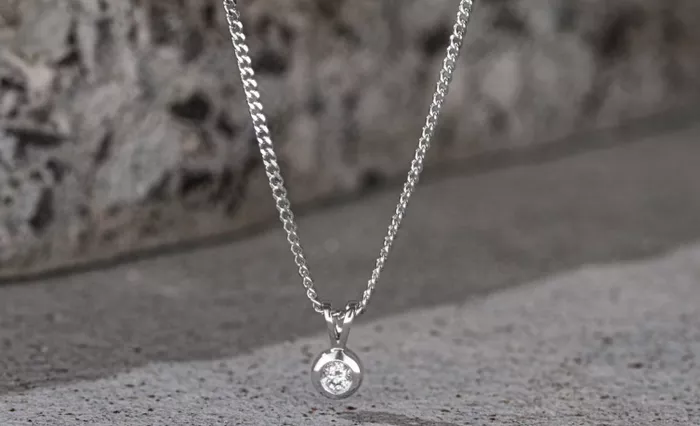Necklaces have adorned human necks for centuries, transcending cultures and epochs. They are more than just decorative pieces; necklaces hold significant cultural, social, and personal meanings for those who wear them. From ancient civilizations to modern fashion statements, the motivations behind wearing necklaces are varied and deeply rooted in human history and psychology. This article delves into the intricate tapestry of reasons why individuals choose to wear necklaces, exploring historical contexts, cultural significances, psychological motivations, and contemporary influences.
Historical Contexts: From Ancient Adornments to Modern Expressions
The history of necklaces spans millennia, reflecting evolving human civilizations and their values. In ancient times, necklaces were crafted from natural materials like shells, bones, and stones, often imbued with symbolic meanings. For example, in ancient Egypt, necklaces were not just ornaments but symbols of status and protection, with intricate designs reflecting craftsmanship and societal hierarchies. Similarly, in ancient Rome, necklaces signified wealth and social standing, adorned with gemstones and metals to showcase opulence.
Throughout history, necklaces evolved alongside cultural shifts and technological advancements. The Renaissance period saw a resurgence in jewelry craftsmanship, with necklaces becoming symbols of artistry and luxury. The Industrial Revolution democratized access to jewelry, making necklaces more accessible across social classes. Today, necklaces are crafted from a diverse array of materials—from precious metals and gemstones to sustainable alternatives like recycled metals and organic materials—reflecting contemporary values of sustainability and ethical consumption.
Cultural Significance and Symbolism: Beyond Ornamentation
Necklaces hold profound cultural significance in societies around the world, often symbolizing rites of passage, social status, and spiritual beliefs. In many cultures, necklaces are integral to rituals and ceremonies, marking milestones such as weddings, births, and coming-of-age celebrations. For instance, among the Maasai people of East Africa, beaded necklaces are symbols of cultural identity and community belonging, intricately woven with meanings that transcend mere adornment.
Moreover, necklaces carry specific symbolic meanings. In Hindu culture, gold necklaces are worn as auspicious symbols during religious ceremonies, symbolizing prosperity and blessings. In Native American traditions, turquoise necklaces are believed to possess protective and healing properties, connecting wearers to their spiritual heritage and natural environment. These symbolic associations illustrate how necklaces serve as tangible expressions of cultural heritage and personal beliefs, forging connections between individuals and their communities.
See Also: How Do I Sell My Diamond Necklace?
Psychological Motivations: Self-Expression and Personal Identity
Psychologically, the act of wearing a necklace is deeply intertwined with self-expression and personal identity. Just as clothing and hairstyles reflect individual tastes and preferences, necklaces serve as wearable statements that convey aspects of personality, values, and affiliations. Whether choosing minimalist designs or bold, statement pieces, individuals use necklaces to articulate their unique identities and assert their presence in social contexts.
Research in psychology suggests that jewelry, including necklaces, can influence self-perception and interpersonal interactions. A well-chosen necklace can boost self-esteem and confidence, acting as a source of empowerment and personal validation. Moreover, wearing meaningful necklaces—such as heirlooms or gifts—can evoke positive emotions and strengthen emotional bonds with loved ones, enhancing social well-being and psychological resilience.
Social and Cultural Norms: The Role of Necklaces in Social Interactions
Necklaces also play a significant role in social interactions and cultural norms. In many societies, specific necklace styles are worn to denote social status, professional affiliations, or marital status. For instance, in Western cultures, engagement and wedding rings are complemented by bridal necklaces, symbolizing love and commitment. Similarly, in professional settings, necklaces may be chosen to convey professionalism and authority, influencing perceptions and interactions in business environments.
Furthermore, necklaces facilitate social bonding and connection. Exchanging necklaces as gifts can strengthen relationships and commemorate meaningful occasions, fostering a sense of intimacy and reciprocity. Across cultures, the act of gifting necklaces signifies respect, affection, and solidarity, underscoring their role as powerful symbols of human connection and shared experiences.
Fashion Trends and Influences: Shaping Necklace Preferences
The world of fashion exerts a profound influence on necklace styles and trends, shaping consumer preferences and cultural aesthetics. Fashion designers and celebrities often set trends through runway shows, red carpet appearances, and social media, popularizing specific necklace designs and materials. From classic pearl necklaces to contemporary minimalist pendants, fashion trends reflect broader societal shifts and values, embracing diversity and innovation in jewelry design.
Moreover, technological advancements have revolutionized the jewelry industry, enabling designers to experiment with new materials and techniques. Computer-aided design (CAD) software allows for precise modeling and customization, facilitating the creation of intricate necklace designs that blend tradition with innovation. Sustainable practices are also gaining traction, prompting jewelers to explore eco-friendly materials and ethical sourcing practices in response to consumer demand for responsible consumption.
Conclusion
In conclusion, the reasons why people wear necklaces are as diverse and multifaceted as the necklaces themselves. From ancient symbols of power and protection to modern expressions of personal style and social identity, necklaces transcend mere ornamentation to embody cultural heritage, psychological well-being, and social connectivity. As individuals continue to navigate their identities and relationships in an ever-changing world, the significance of necklaces remains steadfast, reflecting timeless values and evolving aspirations for self-expression and connection.

